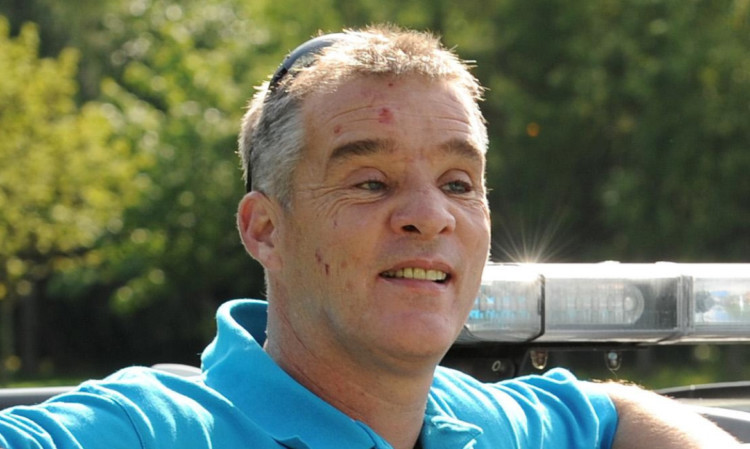Being shot and blinded by gun maniac Raoul Moat was the “first step” in the series of events which led to PC David Rathband killing himself, a coroner has ruled.
The traffic officer who became a national hero grew desperate after the collapse of his marriage and struggled to cope with his sudden and irreversible disability.
He was found hanging at his home 20 months after he was blasted while on duty. Some friends and members of his family believed Northumbria Police could have done more to support him.
Coroner Eric Armstrong urged none of those involved in the hearing to blame themselves.
And, after concluding Mr Rathband took his own life, he said: “The circumstances of his injuries (inflicted by Moat) are well-known.
“It is difficult, if not impossible, not to view the infliction of those injuries as the first step in a series which culminated in his death.”
The inquest heard Mr Rathband, 44, had made threats to kill himself and told his lover he attempted to hang himself but could not go through with it.
But his widow Kath and police colleagues she alerted, while concerned for his well-being, did not consider him to be at immediate risk of suicide.
Mr Rathband was found hanging at his home in Blyth, Northumberland, on February 29 2012. He lived there alone, having left the family home following a domestic dispute the previous August.
The three-day inquest, at Newcastle’s Moot Hall, heard his wife put up with previous affairs, but his last – with 7/7 London bombing survivor Lisa French – effectively ended the marriage.
Mrs Rathband broke the news to her husband prior to him flying out for a holiday in Australia with his identical twin Darren.
While on holiday, Mr Rathband made desperate attempts to contact his wife, ringing her up to 50 times on some days. The messages were unpleasant, abusive and threatening, she told the hearing.
In one he pretended to be a police officer ringing to say her husband was dead. But he would be rational and pleasant if she spoke to him directly, she told the hearing.
On another occasion he threatened to video-call his wife and kill himself while she watched.
Family liaison officer Detective Constable Alison Brown, who became a friend of the Rathbands, told the hearing: “For someone to say that, I just thought it was an awful thing to say.
“I was concerned for his well-being and his mental state but I did not think he would kill himself.”
Mrs Rathband visited him for the last time on the night he died. She said she thought he looked “awful” and decided he needed support.
But she felt she was not the right person to be with him and contacted his sister Debbie Essery in Staffordshire and his welfare officer Inspector John Heckles.
Mrs Essery contacted Det Con Brown with a Facebook message to pass on her concerns.
That evening, officers including Mr Heckles eventually broke into his home and found him hanging in the darkness, with music playing from his phone.
Ms French had also seen him earlier that day, and she told the inquest he said he had experienced suicidal thoughts, but had not been able to kill himself.
The police were also questioned about whether their response on the night that Mr Rathband died had been appropriate.
Superintendent Jim Napier, of Northumbria Police, said that after receiving concerns about Mr Rathband’s welfare he decided an officer should go to his home and check on him.
But due to the fact that he had made threats to kill himself before, and that the family had raised their concerns only through Facebook, he did not regard it as an immediate threat to life.
“It’s my experience that people who intend to take their own lives will do so. Those who make threats to take it over a period of time need help,” he said.
Mr Rathband was shot and blinded by Moat in Newcastle in July 2010 after the gunman declared war on police while on the run for murder and attempted murder.
He became a national hero and used his profile to set up the Blue Lamp Foundation to support 999 staff injured at work.
But after attending the trial of Moat’s two accomplices in spring 2011, he lost focus and grew despairing.
His widow said he had not had time to adjust to life without sight.
